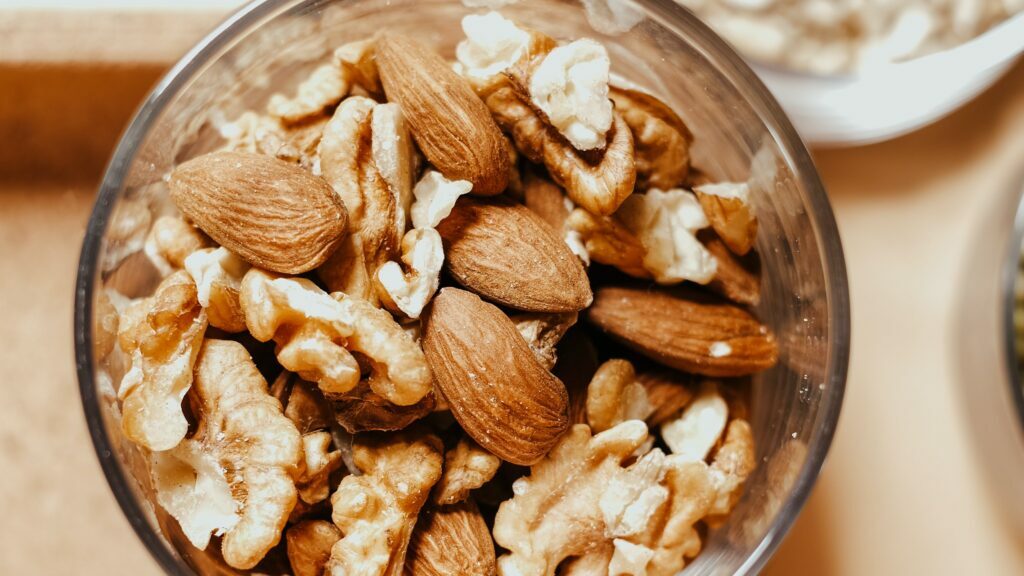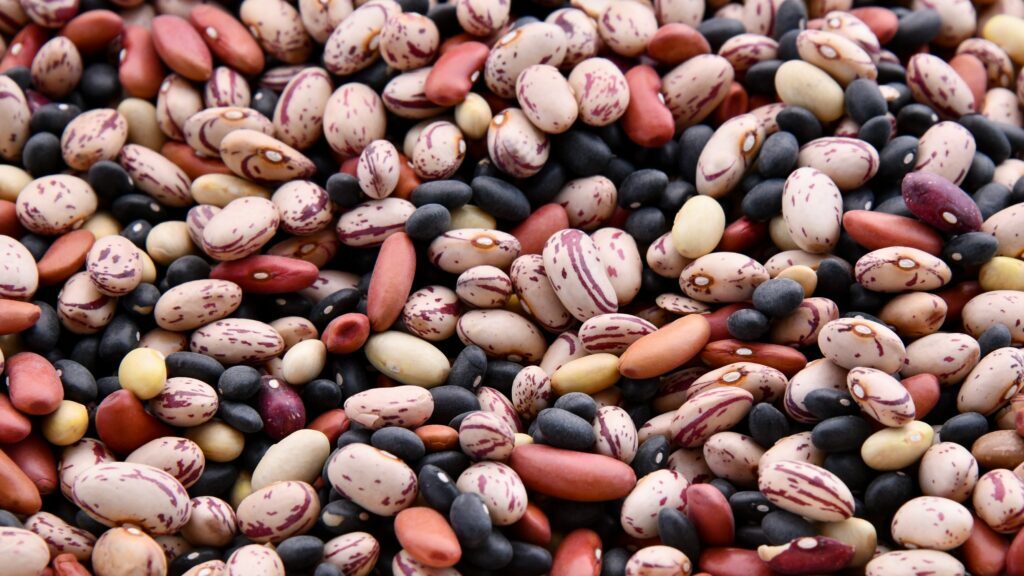This article will go over the 10 best magnesium-rich foods to consume and live a healthier life which is free from anxiety, weakness, PMS, migraines, etc.
Magnesium is a mineral that is essential for your body to function properly. The mineral influences around 300 chemical processes within you.
Without it, your muscles cannot move as they should. Your nerves are unable to transmit and receive signals. Magnesium also helps to maintain a healthy heart rhythm, blood sugar levels, and joint cartilage. It aids your body’s production of protein, bone, and DNA.
The body does not produce magnesium on its own. The quantity you require is determined by your age and gender. If you’re a woman aged 19 or older, you need 310 milligrams (mg) per day; if you’re pregnant, you need 350 mg. An adult guy under the age of 30 needs 400 mg every day. Men above the age of 30 require 420 mg.
It’s usually ideal to receive magnesium through diet, although multivitamins and supplements can also help. However, too much might induce nausea, stomach cramps, and diarrhea. In severe circumstances, it may result in an irregular heartbeat or cardiac arrest.
Some symptoms of magnesium deficiency
- nausea and vomiting.
- loss of appetite.
- fatigue and weakness.
- shaking.
- pins and needles.
- muscle spasms.
- hyperexcitability.
- sleepiness.
Since up to 50 percent of the US, population is magnesium deficient. Here goes the list of 10 magnesium-rich foods to consume:
1. Almonds

Almonds are popular all over the world, where they are eaten raw as a healthful snack, used as the foundation ingredient in almond butter and almond flour, mixed into almond milk, and converted into a variety of body lotions, oils, and scents.
They are also high in magnesium. One ounce (28 grams) of almonds contains around 57 milligrams of magnesium (19 percent DV). Almond nutrition is well regarded in the medical community because to the inclusion of monounsaturated fatty acids, dietary fiber, and antioxidants.
For health benefits, the standard recommendation is to eat a small “handful,” or roughly a 1/4 cup (about 1 to 1.5 ounces), of nuts daily. If you eat almond butter, aim for about one to two tablespoons.
2. Dark chocolate

We’re not talking about any old chocolate here, but rather dark chocolate with 70 to 85 percent cocoa solids. It includes 63.8 mg of magnesium per ounce (16 percent DV).
Dark chocolate also contains 0.5-milligram manganese (27 percent DV), 0.5-milligram copper (25 percent DV), and 3.3-milligram iron (19 percent DV).
Although chocolate may be a healthy supplement to a diet, it’s crucial to remember that each serving contains a lot of dark chocolate calories. To avoid overindulging, eat a little slice after a substantial meal or include it in a dish.
3. Flaxseeds

Flaxseeds, also known as linseeds, have been ingested for at least 6,000 years, making them one of the earliest cultivated superfoods. Two tablespoons of whole/unground flaxseed (about one serving) provide approximately 80 milligrams of magnesium (20 percent DV).
Flaxseeds are healthy in general because they are high in minerals, fiber, and anti-inflammatory omega-3 fatty acids (although not the same type found in fish). In addition to various other flaxseed advantages, they offer us antioxidant chemicals known as lignans, which assist improve hormonal equilibrium.
Ground flaxseeds are typically preferred over whole flaxseeds for maximum health advantages. They may be added to oatmeal, baked dishes, meat coatings, yogurt, and other foods.
Also check this only supplement with all 7 essential types of magnesium
4. Avocados

Avocados are a delicious source of magnesium and a very healthy fruit. One medium avocado has 58 milligrams of magnesium, which is 15% of the RDI.
Avocados also include a lot of potassium, B vitamins, and vitamin K. In addition, unlike other fruits, they are heavy in fat, particularly heart-healthy monounsaturated fat.
Avocados are also a good source of fiber. In fact, fiber accounts for 13 of the 17 grams of carbs in an avocado, making it very low in digestible carbs.
5. Tofu

Tofu is a popular vegetarian cuisine owing to its high protein content. It is also known as bean curd and is made by squeezing soybean milk into soft white curds.
A 3.5-ounce (100-gram) meal contains 53 mg of magnesium, which accounts for 13% of the RDI.
In addition, one serving contains 10 grams of protein and 10% or more of the RDI for calcium, iron, manganese, and selenium.
Furthermore, some research suggests that eating tofu may preserve the cells lining your arteries and lower your chance of stomach cancer.
6. Some Fatty Fish

Fish, particularly fatty fish, is extremely nourishing.
Many fish, including salmon, mackerel, and halibut, are high in magnesium.
Half a fillet (178 g) of salmon has 53 mg of magnesium, which is 13% of the RDI.
It also contains a whopping 39 grams of high-quality protein.
Furthermore, fish is high in potassium, selenium, B vitamins, and other minerals.
High consumption of fatty fish has been associated with a lower risk of numerous chronic illnesses, most notably heart disease.
These advantages have been related to high levels of omega-3 fatty acids.
7. Bananas

Bananas are one of the world’s most popular fruits.
They’re most known for their high potassium content, which has been linked to decreased blood pressure and a lower risk of heart disease.
However, they are high in magnesium – one big banana has 37 mg or 9% of the RDI (41).
Bananas also include vitamin C, vitamin B6, manganese, and fiber.
Because ripe bananas contain more sugar and carbohydrates than most other fruits, they may not be good for diabetics.
However, resistant starch makes up a major amount of the carbohydrates in unripe bananas and is not digested or absorbed.
Resistance starch has the potential to decrease blood sugar levels, reduce inflammation, and enhance intestinal health.
8. Leafy Greens

Leafy greens are incredibly nutritious, and many are high in magnesium.
Magnesium-rich greens include kale, spinach, collard greens, turnip greens, and mustard greens.
1-cup portion of cooked spinach, for example, has 157 mg of magnesium, or 39% of the RDI.
Furthermore, they are a good source of iron, manganese, and vitamins A, C, and K.
Leafy greens also include a variety of beneficial plant components that help protect your cells from harm and may lower your risk of cancer.
9. Legumes

Legumes are a fantastic source of plant-based protein as well as magnesium and other vitamins and minerals. Soy-based products such as tofu are also a great, low-fat alternative to red meat and you can add canned or dried beans to soups or stews to give them a hearty boost.
- Black beans – 180mg per 100g
- Red kidney beans – 164mg per 100g
- Edamame beans – 65mg per 100g
The USDA’s 2020-2025 dietary guidelines indicate that you center your meals on starchy carbs such as whole grain pasta, rice, or bread. Whole grains are high in fiber because they include the complete unprocessed kernel rather than only a portion of the grain, as refined white grains do. As a result, they contain more magnesium than refined equivalents. Replace white bread with whole grain toast and nut butter for a magnesium-rich breakfast.
- Wholegrain bread – 76.6mg per 100g
- Rye bread – 40mg per 100g
- Brown rice – 39mg per 100g
10. Quinoa

Quinoa is a favorite of vegetarians and vegans because it provides full protein. Quinoa is high in fiber as well. Per 1 cooked cup, it contains 118.4 mg, 28% DV for magnesium.
Quinoa’s flexibility makes it an excellent choice for stir-fries, grain-based salads, and complex-carb side dishes, as well as these delectable quinoa recipes.
The Bottom Line
Magnesium is an important mineral that you may not be getting enough of. Thankfully, many delicious foods will give you all the magnesium you need.
Make sure to eat a balanced diet and up your intake of the foods listed above to keep your health robust and your body satisfied. If you are looking for a magnesium supplement then do check out this supplement with all the essential types of magnesium which is very easy to digest as well. Click here to read our extensive review of this supplement.
Disclaimer: The links contained in this product review may result in a small commission if you opt to purchase the product recommended at no additional cost to you. This goes towards supporting our research and editorial team and please know we only recommend high-quality products.

